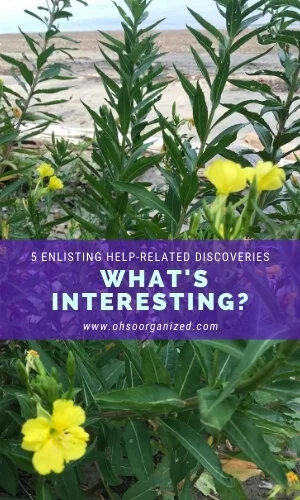Have you ever tried to create a new habit or behavior? Altering your habit cue will encourage a different result. For example, if you want to stop losing your keys, you can put a small bowl in a landing spot to catch your keys when you enter your home. The bowl becomes your new cue and helps to change your habit. No more misplaced keys because you have established a specific home where you will always find them. This sounds good, right? What happens when you successfully put your keys in the bowl for days, even months, and then one time you forget to do it? You frantically hunt for your misplaced keys and berate yourself for losing them. How do you bounce back from there? Do you give up? Do you engage in negative self-talk? Will you embrace a fresh start even after your break in continuity?
Recently, I had an upsetting experience with one of my habits. I’ve been practicing mindfulness meditation for four years. I’ve meditated almost daily with a gap here and there. For a while now, Insight Timer has been my favorite meditation app. Aside from the app offering diverse meditations and teachers to choose from, it also tracks my activity. So I know how many consecutive days I’ve meditated. To help keep me committed to my practice, I also use a daily repeat on my to-do list that cues me.
So what happened? I intentionally deviated from my normal morning routine, including mindfulness meditation, so I could make a special birthday breakfast for my husband. My plan was to meditate later that day or at bedtime. However, the day got away from me for various reasons, and before I realized it, it was past midnight. I missed my practice that day. I’ve missed meditation practice a day or two at other times, so why was I so upset? I mentioned before that Insight Timer tracks my activity. Up until the other day, I had 390 consecutive days of practice. By missing that single day, the consecutive days counter restarted. I was so disappointed in myself. How could I have missed a day? The negative self-talk was quite insistent. And then something happened. I asked, “What lesson can I learn?” I wanted to shift my unhelpful thinking to a more positive, growth-oriented mindset.
“What lesson can I learn?”
3 Lessons Learned From My Break in Continuity
1. It’s just a number.
Seeing the consecutive days’ number increase after each meditation gives me a motivation boost. But the reason I meditate has nothing to do with the number. I meditate to feel calmer, provide quiet space, practice focus, shift attention, and be more mindful. None of those things have anything to do with a number. I don’t meditate for the gold star or days tracked by the app. However, by missing one practice, I recognized how reliant I had become on the tracker, which wasn’t healthy.
What I know is the more I practice, the better I feel, and the more I’m able to regulate my emotions. The 390 consecutive days I practiced aren’t lost. And the meditations ahead will continue to be helpful. I reminded myself to use the tracking if it helps but recognizing it only represents a tiny part of the entire story.
2. Understand the “what-the-hell effect.”
I recently attended a meeting with fellow Executive Mom Nest Advisor, Monica Moore, a health and fertility coach. She talked about habit change and how certain actions can derail us. Monica described the “what-the-hell effect,” a term behavioral scientists use. It’s a feeling of shame we can experience when we mess up and deviate from a habit we’ve established. For example, let’s say you committed to not eating ice cream. You successfully eliminated it from your diet. Then one day, you eat a small spoonful. Instead of stopping there, you down the entire pint thinking, “I already screwed- up, so I might as well keep going.”
This made me think about missing my morning meditation practice. I could have gone down the “what-the-hell” path. But I rejected the ‘all or nothing’ thinking. Yes, I made one sidestep that I was unhappy about. However, I stepped back in the following day, practiced, and gifted myself a fresh start.
3. When all else fails, let go.
I woke up to face the Insight Timer app. After my morning meditation, I knew that the consecutive days displayed wouldn’t increase to 391 but would revert to just 1. Ouch. My berating began again, which wasn’t helpful. I wanted to reframe my negative thoughts. I selected one of my favorite practices, Letting Go Meditation, guided by Annemaree Rowley. Before the meditation ended, she read a poem by Erin Hanson. I love the last line, “. . . not everything you ever lose, is bound to be a loss.” How true that is. I lost consecutive day 391. However, in doing so, I strengthened my commitment to my practice, remembered my why, and let go of the negative self-talk.
“. . . not everything you ever lose, is bound to be a loss.”
Is it possible to embrace a fresh start, especially when your habit or goal get derailed? You always have the opportunity to begin again. When you go off course, what helps you move forward? I’d love to hear your thoughts. I invite you to join the conversation.

















